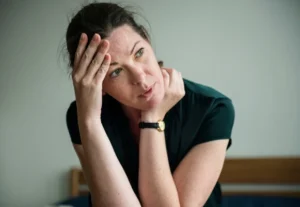If you or someone you care about is battling depression, you understand how difficult it is and the significant impact it has on daily life. Depression is not just feeling sad or having a bad mood; it’s a serious mental illness that changes how people think, feel, and act every day. For teens, young adults, and adults facing depression, effective treatment options can be life-changing.
One proven option is the Intensive Outpatient Program (IOP). The Anxiety, Trauma & Depression Treatment Center offers IOPs that act as a lifeline for adolescents, young adults, and adults dealing with depression. These programs provide evidence-based treatments and utilize their Resilience Method in a supportive environment.
In this blog, we will explore the true nature of depression, how IOPs facilitate recovery across different age groups, and what research indicates about their effectiveness.
 Understanding Depression
Understanding Depression
Major Depressive Disorder, or depression, is a mood problem marked by constant sadness, no interest in things, changes in eating or sleeping, tiredness, and a sense of despair. Symptoms can vary with age. For example, teenagers may become more irritable or struggle academically, while adults may experience difficulties at work or in their personal relationships. If not treated, depression can affect all areas of life, including personal relationships, education, health, and job stability.
What Is an Intensive Outpatient Program (IOP)?
An Intensive Outpatient Program (IOP) is a structured, non-residential treatment option for individuals who require more support than traditional outpatient care but do not require 24/7 supervision, such as inpatient programs. IOPs typically offer treatment sessions 3 to 5 days a week, with each session lasting approximately 3 to 5 hours. Participants can continue to live at home while receiving therapy, medication management, and peer support.
IOPs are designed to help the developmental and emotional needs of different age groups:
- Adolescents benefit from scheduling that accommodates school hours and includes family therapy.
- Young adults receive support for navigating life transitions, developing their identity, and fostering independence.
- Adults gain tools to effectively manage responsibilities, relationships, and long-term stressors.
How IOPs Help with Depression
 Structured Support Without Hospitalization: IOPs offer regular care that helps individuals manage their mood while continuing their daily routines. This approach enables individuals to receive treatment while learning practical and effective coping skills that can be applied in real life.
Structured Support Without Hospitalization: IOPs offer regular care that helps individuals manage their mood while continuing their daily routines. This approach enables individuals to receive treatment while learning practical and effective coping skills that can be applied in real life.- Access to a Multidisciplinary Team: Most Intensive Outpatient Programs (IOPs) provide access to a therapist, a group facilitator, and family counseling upon request. This collaborative approach ensures that an individual’s mental health needs are addressed, including co-occurring issues such as anxiety and trauma.
- Group and Individual Therapy: Individuals participate in evidence-based treatments, including CBT, DBT, and mindfulness. Group therapy enables individuals to form connections and support one another, while individual sessions provide a space for personal growth and goal-setting.
- Flexibility and Continuity: Unlike inpatient treatment, IOPs enable clients to maintain their responsibilities—such as school, work, or family care—while still receiving intensive help. They are often utilized as step-down care after hospitalization, helping to bridge the gap between crisis stabilization and ongoing care and support. In cases where weekly therapy isn’t sufficient to address the intensity of a person’s needs, these facilities provide a more supportive environment for recovery.
- Focus on Long-Term Recovery: IOPs help participants create actionable aftercare plans, build emotional resilience, and reconnect with a sense of purpose. Whether it’s a teenager struggling with peer pressure or an adult managing career burnout, IOPs promote sustainable recovery across life stages. Learn more about how we treat depression through IOPs at our depression treatment page.
What the Research Says
Studies regularly show that Intensive Outpatient Programs (IOPs) work well for treating depression:
- For example, a study from 2024 looked at teenagers in IOPs and discovered their depression and self-harm symptoms decreased. This study highlighted the importance of early intervention and ongoing support.
- For adults with severe depression, a 2022 study confirmed that CBT/DBT-informed IOPs resulted in strong improvements in emotional regulation and daily functioning. Read the study.
- A 2025 study on intensive outpatient care for teenagers found that including families in treatment helped teens participate more and feel less anxious and sad.
- A 2023 study found that virtual intensive outpatient treatments helped teenagers and young adults with depression. The flexibility of these treatments allowed more people to get care when they couldn’t attend in-person sessions.
These studies confirm what many clinicians already know: Intensive Outpatient Programs are an effective, adaptable, and scientifically proven method to assist people of any age in conquering depression.
 Is an IOP Right for You or a Loved One?
Is an IOP Right for You or a Loved One?
If you or someone you know is dealing with depression, an Intensive Outpatient Program (IOP) might be helpful. IOPs provide professional support, a sense of community, and the opportunity to heal while remaining engaged in daily life.
At the Anxiety, Trauma, and Depression Treatment Center, we create personalized IOP plans for each client based on their age and mental health needs. Our goal is to help people of all ages regain control of their lives with dignity and effective support.
Stop Living With Depression
Depression is treatable, and you don’t have to face it alone. Anxiety, Trauma, and Depression Treatment Centers throughout Utah provide Intensive Outpatient Programs that are a caring, supportive, proven, and effective approach to your recovery. Whether you are moving on from a hospital stay or looking for an alternative to full-time care, these programs provide a strong base for long-term mental health.
Are you ready to take the next step? Learn more about our depression treatment programs or talk to a care coordinator today.







